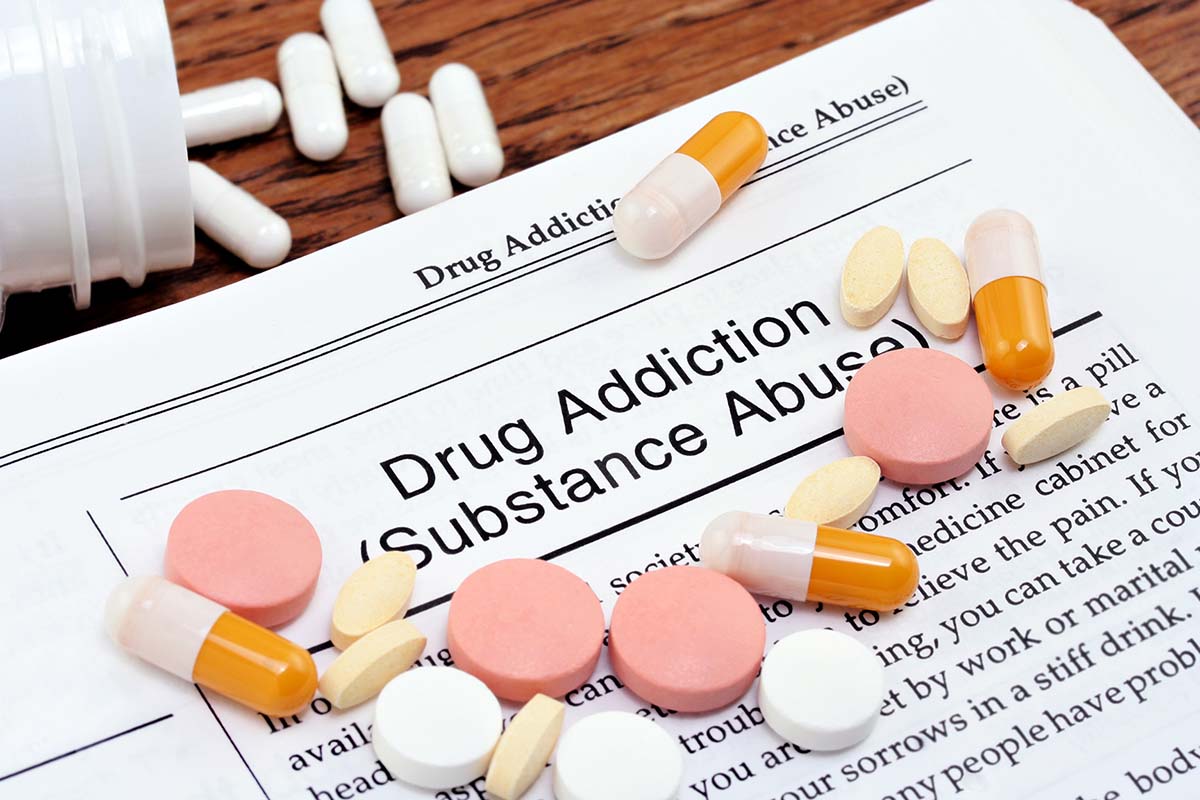A Comprehensive Guide to Substance Abuse Rehab
Substance Abuse recovery, commonly referred to as rehab, is an organized process made to help people overcome reliance on medicines, alcohol, or other addicting substances. It is not simply concerning detoxification-- it is a trip of psychological, emotional, and physical change. Rehabilitation centers give safe settings where individuals can face the source of their addiction, address emotional triggers, and learn coping systems to endure lasting soberness. This procedure is led by trained experts, including specialists, clinical physicians, and therapists who comprehend the intricate nature of dependency as both a behavior and physical condition.
Comprehending the Core important Abuse Recovery
At its core, recovery is concerning restoring an individual's life. Dependency typically leaves deep marks-- stretched partnerships, economic distress, health issue, and mental illness. Through extensive rehab programs, individuals are provided the tools to fix these facets progressively. Rehabilitation isn't simply concerning avoiding materials; it's concerning redeeming control and discovering one's feeling of self-regard. The programs highlight structure, consistency, and individual liability, which are vital to lasting healing success. Every little turning point during rehab functions as a structure for lasting soberness.
In addition, Substance Abuse recovery is not a one-size-fits-all technique. It identifies that each individual's addiction story is unique-- what brought about Substance Abuse abuse, how it proceeded, and just how recuperation can be sustained differ widely. Therefore, treatment centers personalize treatment plans based on specific evaluations, making sure that every individual receives support that lines up with their psychological state, addiction history, and life scenarios. This customized strategy significantly boosts recovery end results and helps protect against relapse when people reintegrate right into day-to-day life.
The Benefits of Inpatient Rehab Programs
Inpatient rehab, likewise referred to as property treatment, uses among one of the most reliable approaches for those battling severe Substance Abuse addiction. One of its main advantages is the distraction-free and structured atmosphere. When a person goes into an inpatient facility, they are momentarily removed from external triggers-- such as buddies who use substances, stressful workplaces, or household problems-- that could impede their healing. This isolation from negative influences permits clients to concentrate entirely on recovery. Living within a monitored and helpful setup develops the stability required to damage old routines and develop healthier patterns of behavior.
One more major advantage of inpatient rehabilitation is the 24/7 specialist supervision available to each person. Withdrawal signs and symptoms from drugs or alcohol can be uncertain and, in many cases, serious. Inpatient centers have medical groups that supply day-and-night care, guaranteeing people are comfortable and risk-free throughout detoxification. Beyond physical health, continual guidance also offers psychological reassurance-- people understand that aid is readily available at any kind of time, which decreases anxiety and develops count on in the recuperation process. This prompt accessibility to medical and mental assistance dramatically enhances the success rate contrasted to outpatient care for extreme addictions.
Finally, inpatient rehabilitation programs promote a solid feeling of community and responsibility. Patients interact with others that share comparable struggles, take part in team therapy, and participate in tasks that urge teamwork and empathy. This setting supports mutual understanding and minimizes sensations of seclusion usually connected with addiction. By attaching with peers and learning from their experiences, individuals establish social bonds that proceed to sustain them also after leaving the facility. This feeling of belonging, incorporated with regular professional assistance, makes inpatient rehab an extremely reliable foundation for sustainable healing.
Inpatient Rehabilitation Providers Offered
Inpatient rehabilitation centers provide a varied series of services developed to deal with the body, mind, and spirit all at once. The initial stage commonly involves medical detoxification, a process that safely eliminates materials from the body while handling withdrawal signs and symptoms. Detoxification is supervised by physician that might carry out medicine to ease pain and protect against problems. When detox is total, individuals change to organized day-to-day programs that consist of wellness, counseling, and therapy activities. This integrated method guarantees that patients not just get rid of physical dependence but additionally address psychological and psychological facets of dependency.
Therapeutic services go to the heart of inpatient rehab. Facilities offer person treatment sessions, where clients function individually with certified specialists to uncover the underlying root causes of their addiction-- such as trauma, psychological wellness conditions, or unsolved emotional pain. Cognitive-behavioral treatment (CBT), dialectical actions treatment (DBT), and motivational interviewing are amongst the most typical evidence-based techniques utilized. In addition, team therapy sessions supply a supportive area for clients to share experiences, gain viewpoint, and establish social abilities. Household treatment is also frequently consisted of, helping to reconstruct count on and improve interaction in between clients and their enjoyed ones.
Beyond traditional treatment, many inpatient programs include recreational and alternative solutions to advertise overall health - dual diagnosis rehab NJ. Yoga exercise, reflection, art treatment, and fitness programs help minimize anxiety and educate mindfulness. Nutritional counseling makes certain that patients rebuild physical health, as Substance Abuse typically depletes the body's vital nutrients. Some rehabilitation focuses also use occupation training and educational workshops to help patients plan for reintegration right into culture. These varied solutions are created to recover the entire person-- not simply treat addiction symptoms-- by fostering durability, purpose, and balance
Why You Have To Take Into Consideration Outpatient Programs
While inpatient rehabilitation uses a extensive and immersive approach, outpatient programs give a choice that enables versatility for individuals that can not dedicate to permanent household therapy. Outpatient rehab enables people to get structured treatment and clinical support while maintaining their day-to-day obligations-- such as family members, work, or college treatment. For several people with mild to modest addiction, outpatient treatment uses the ideal equilibrium between recuperation and everyday life. It permits clients to practice the coping abilities they discover in real-world environments, enhancing their strength when faced with daily difficulties.
An additional reason to think about outpatient programs is their cost-effectiveness. Inpatient care can be costly as a result of lodging, dishes, and 24-hour supervision, which may not be monetarily practical for everyone. Outpatient programs, nevertheless, generally set you back less since they do not call for domestic stays. Lots of centers offer sliding-scale repayment alternatives or approve insurance coverage to make treatment click resources obtainable. For those who have currently finished inpatient rehabilitation, transitioning into an outpatient program works as a useful continuum of treatment, helping preserve responsibility and stop regression with continuous support.
Additionally, outpatient programs use a high level of modification. Clients can choose between partial hospitalization programs (PHP), extensive outpatient programs (IOP), or standard outpatient treatment, relying on their degree of demand. Each option offers varying degrees of framework and time dedication. IOPs generally include several therapy sessions per week, while basic outpatient care might include once a week therapy brows through. This adaptability makes certain that individuals can get expert assistance tailored to their recovery phase, making outpatient programs a sensible and equipping option for long-term recovery upkeep.

Exploring Other Treatment Options in Substance Abuse Abuse Recovery
Beyond outpatient and inpatient rehabilitation, there are numerous various other therapy alternatives readily available for people looking for healing from Substance Abuse dependency (substance abuse treatment Morris County). Medication-assisted treatment (FLOOR COVERING) is one such approach, incorporating suggested drugs with behavior modification to take care of withdrawal signs and symptoms and lower desires. Drugs like naltrexone, methadone, or buprenorphine are usually made use of in opioid dependency treatment, while acamprosate or disulfiram may support alcohol recovery. Floor covering linked here aids support brain chemistry, permitting individuals to concentrate on therapy and lifestyle changes without the frustrating discomfort of withdrawal

Alternate therapies are additionally ending up being increasingly preferred in Substance Abuse Abuse treatment. These might include all natural methods like acupuncture, equine therapy, adventure-based counseling, and spiritual recovery programs. While these approaches might not replace traditional therapy, they can enhance it by improving psychological policy, self-awareness, and self-confidence. The goal of discovering different therapy options is to produce a recovery strategy that resonates with each individual's worths, beliefs, and way of life. A personalized mix of therapies commonly yields one of the most lasting results, equipping people to live a satisfying, go to this website substance-free life.
The Course to Long-Term Sobriety and Healing
Finishing rehabilitation-- whether inpatient or outpatient-- is only the beginning of a long-lasting recovery journey. Aftercare programs play a critical role in preserving soberness and avoiding regression. These programs might consist of ongoing treatment, support system like Narcotics Anonymous or Alcoholics Anonymous, and sober living plans that give continued structure. Consistency and neighborhood are essential; people who remain attached to recovery networks are more probable to maintain long-lasting progression. Rehabilitation instructs the required coping abilities, yet aftercare ensures that those skills are used and strengthened in real-life situations.
Long-lasting healing likewise relies on way of living adjustments that sustain mental and physical wellness. Developing healthy and balanced routines-- such as normal workout, well balanced nourishment, and mindfulness techniques-- aids recover balance to the mind and body. Taking part in deliberate tasks like volunteering, going after pastimes, or reconnecting with liked ones can fill the emotional void left by Substance Abuse usage. Focusing and developing a favorable way of thinking on future objectives offer recuperating individuals a restored sense of identity and direction. Sobriety is not concerning starvation; it has to do with redeeming life's richness and chances.

Via detailed rehabilitation programs, individuals are given the devices to fix these facets progressively. Inpatient rehabilitation programs cultivate a strong sense of area and liability. While inpatient rehab provides an immersive and intensive strategy, outpatient programs provide a choice that enables versatility for individuals that can not dedicate to full-time household therapy. Outpatient rehab enables patients to obtain structured treatment and medical support while keeping their daily duties-- such as family, institution, or job care. Past outpatient and inpatient rehab, there are a number of other treatment choices readily available for individuals looking for recovery from Substance Abuse dependency.